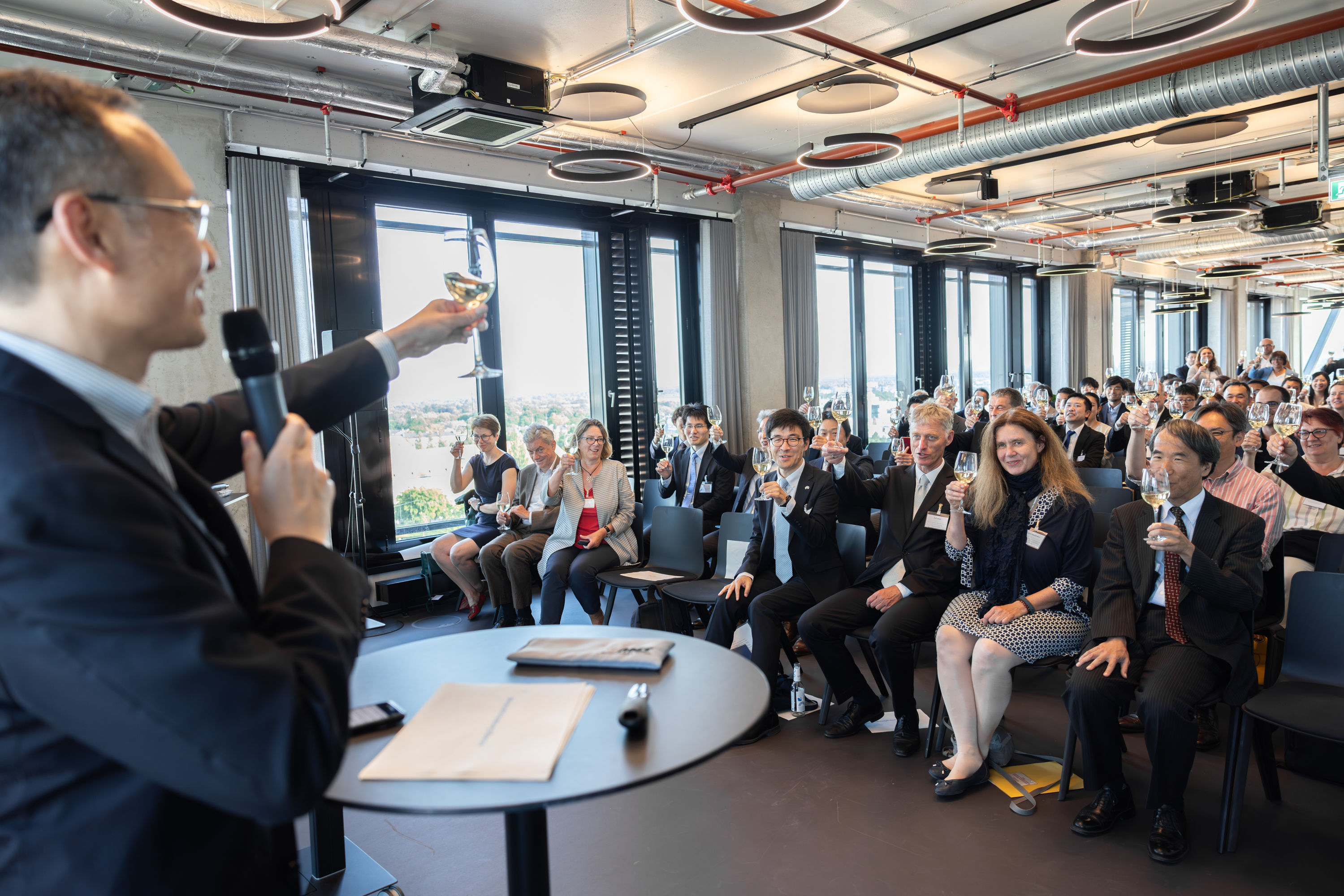Sector in brief
In an international comparison, Germany is one of the leaders in the research, development and marketing of nanotechnology findings, but also in questions of possible risks for humans and the environment.Bavaria is considered one of the most important nanotechnology locations in the country. Nanotechnology offers solutions for a wide range of industries such as the automotive industry, biotechnology and environmental technology, aerospace, mechanical engineering and the textile industry. Through close cooperation with companies from all user industries, nanotechnology is one of the most interdisciplinary sectors and is therefore considered an outstanding example of cross-industry innovation.
In addition to Munich, the Main-Franconia region in particular has hidden champions in this field, for example the globally active company Multiphoton OpticsGmbH which produces nanoscale and microscale 3D printing. The nanoplus (Nanosystems and Technologies GmbH) company based in Gerbrunn produces special lasers that can be used, for example, to determine gas compositions. This is used, among other things, to check drivers for alcohol in their own vehicles. The Würzburg-based start-up InstruNEXT GmbH demonstrated the importance of the interaction between measurement technology and artificial intelligence (AI) and how AI can further improve measurement methodology. As a result, self-learning neural networks can provide crucial assistance in the evaluation and interpretation of measurement results.
![[Translate to English:] [Translate to English:]](https://ik.imagekit.io/sgliwi1izsz/_processed_/d/d/csm_Invest_In_Bavaria3924_149fc14d1d.jpg?tr=w-1024 1024w, https://ik.imagekit.io/sgliwi1izsz/_processed_/d/d/csm_Invest_In_Bavaria3924_149fc14d1d.jpg?tr=w-1280 1280w, https://ik.imagekit.io/sgliwi1izsz/_processed_/d/d/csm_Invest_In_Bavaria3924_149fc14d1d.jpg?tr=w-1536 1536w, https://ik.imagekit.io/sgliwi1izsz/_processed_/d/d/csm_Invest_In_Bavaria3924_149fc14d1d.jpg?tr=w-1920 1920w)
Agata Butenko
Investor Services Materials
+49 89 24210-7525 agata.butenko@invest-in-bavaria.com
Rosenheimer Str. 143C
81671 Munich
Bavaria has an excellent research landscape where interdisciplinary research is carried out into nanotechnology solutions for areas such as chemistry, the environment, health and construction. A total of 556 players from industry, research and innovation are active in Bavaria. At the same time, given the enormous potential of this key technology, there is still plenty of room for other players and new developments. In addition to advances in medicine, nanotechnology is also contributing to development in the area of digitalisation, for example, through new types of semiconductors for computers, improved displays and batteries with a longer service life. For new, cross-industry collaborations, it all comes down to the right networking, which is being intensively promoted in Bavaria: The nanotechnology cluster wiith more than 150 partners organises the transfer of knowledge to companies, so that new findings can quickly be turned into marketable products that find many buyers both nationally and internationally.
Figures from the nanotech industry
125.00
large companies and SMEs in Bavaria
68.00
Bavarian university research institutions
12.00
research institutes throughout Bavaria
19.00
networks all over Bavaria
Research and university education in nanotechnology in Bavaria are concentrated primarily in the research regions of Augsburg and Munich, the European Metropolitan Region of Nuremberg, Würzburg as well as Bayreuth and Regensburg. Young academics for the industry are growing here, for example in the master’s degree course “New Materials/Nano and Production Technology” at Nuremberg Institute of Technology or the Nanoscience course at the University of Regensburg. A total of 14 nanotechnology courses are offered in Bavaria. That’s more than in any other state. Entrepreneurs will therefore find top academic researchers from various fields of nanotechnology in Bavaria. However, promoting talent in the still young sector does not start with training offers in Bavaria. Projects, such as the Nano School Competition organised by Nanonetz Bavaria e.V., are already familiarising schoolchildren with the subject of nanotechnology.
Bavaria is not only placing strong emphasis on promoting nanotechnology in education and training but in research too. The Bavarian government regularly funds new research projects in the field of nanotechnology, such as the INAM e.V. research facility in the field of nanoscale high-tech materials and biomedicine. Important scientific findings are developed in particular within the framework of funding measures from the German Research Foundation (DFG) and research activities by the Helmholtz Centres (HGF), the Fraunhofer Gesellschaft (FhG) and universities and universities of applied sciences. Almost one third of all Fraunhofer institutes are active in the Nanotechnology Alliance. The fields range from nano-optics/electronics to modelling/simulation, security and policy advice. They work closely with other Fraunhofer institutes, such as Material and Beam Technology or Chemical Technology.
With the Nanotechnology Cluster organised by Nanoinitiative Bavaria GmbH, Bavaria supports companies from the still young technology sector in a variety of tasks that create the basis for economic success. The network promotes professional exchange between research institutes, decision-makers from politics and users in the economy. It supports innovative R&D projects, for example by searching for suitable funding or, if desired, by providing complete project management.
Individual Bavarian networks such as NanoSilver, NanoCarbon or nanoInk are concerned with the manufacture of marketable products as well as the processing, production and disposal of nanomaterials. They work closely together. The cluster also initiates contacts with international institutions, networks and companies for smaller Bavarian companies in the sector to facilitate their entry into international markets. One example is the HighTechComm project, initiated jointly by the Nanotechnology Cluster and the Munich Biotech Cluster m4, which facilitates access to professional technology communication for SMEs. In addition, the cluster also conducts socially relevant open discussions on the opportunities and risks of nanotechnology, successfully strives for a high level of acceptance and integrates nanotechnology content into school and university teaching. As an open platform, the Nanonetz Bayern e.V. association with 68 members connects numerous players from economy, science, politics and education with the aim of introducing nanotechnological approaches into the social and economic sector.
Bavaria is an ideal location for start-ups, thanks in part to its numerous funding initiatives. Institutions such as the Bavarian Research Alliance or the Nanotechnology Cluster also assist with accessing funds at national and international level. As a cross-sectional technology, nanotechnology continues to offer huge growth potential for the economy, especially with its innovative start-ups and inventive SMEs. Bavaria is particularly important as a location for start-ups because of its broad spectrum of customers from a wide range of sectors. Many of the NanoTech companies are less than 10 years old.
They are often spin-offs that have emerged from universities and research institutes. The Center for NanoScience (CeNS)at LMU Munich, a consortium of young and older scientists from various institutes, also produced a start-up – leon-nanodrugs GmbH. The company is developing a MicroJetReactor (MJR) platform technology that enables the production of nanoparticles from a variety of pharmacological classes. “Leon” is considered a pioneer for nanotechnology in the pharmaceutical industry and carries out cooperation projects with pharmaceutical and biotech companies. MIRell Photonics GmbH based in Würzburg should also be mentioned here. The still young company has developed a low-cost optical measuring device for non-destructive material analysis using ellipsometry. This is primarily used to determine optical constants and layer thicknesses.
Is Bavaria of interest to you as a business location? We are happy to support you during the entire establishment process: from planning to the search for a location, formalities and visa issues. We are still available once you have established yourself in Bavaria and will put you in touch with networks, associations and clusters. Simply get in contact with us – the international team at Invest in Bavaria is looking forward to hearing from you.
News
Aktuell liegen keine Veranstaltungen vor
Location map
Companies in the Bavarian nanotechnology sector









